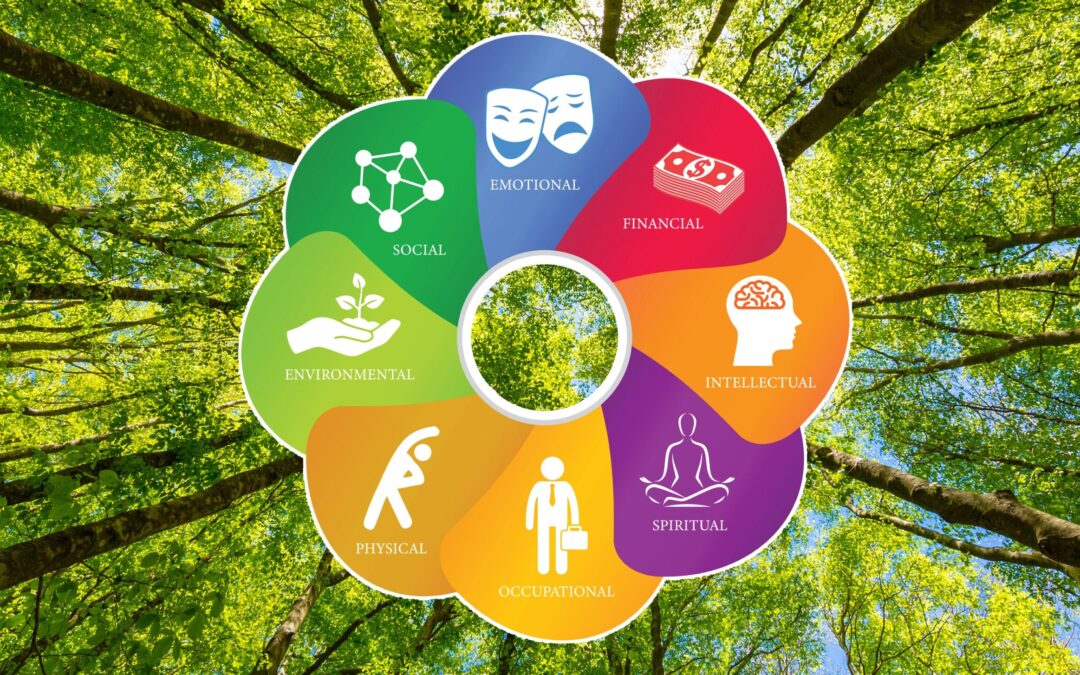A holistic approach to wellness and recovery from substance abuse is gaining momentum in the field of addiction treatment. This approach, rooted in the recognition of the individual as a multi-faceted entity, focuses on the ‘Eight Dimensions of Wellness’. This concept, developed by the Substance Abuse and Mental Health Services Administration (SAMHSA), suggests that optimal health is achieved when these eight interconnected dimensions are nurtured and balanced. These dimensions are: emotional, spiritual, intellectual, physical, environmental, financial, occupational, and social wellness.
Emotional Wellness
Emotional wellness is about acknowledging, understanding, and effectively managing our feelings. Addiction often masks or exacerbates emotional distress, so a key aspect of recovery is learning to navigate the emotional landscape healthily. Therapy, mindfulness practices, and emotional intelligence training are techniques to foster emotional wellness. Emotional resilience developed through such practices can significantly aid recovery and help prevent relapse.
Spiritual Wellness
Spiritual wellness taps into the core values, beliefs, purpose, and meaning that guide our lives. Spirituality in this context is not necessarily religious; it’s about connecting with something greater than oneself. This could involve practices like meditation, nature walks, or participation in religious activities. Nourishing our spiritual self can provide a sense of peace, grounding, and purpose, all vital components of the recovery journey.
Intellectual Wellness
Intellectual wellness pertains to engaging the mind, fostering creativity, and pursuing lifelong learning. Intellectual stimulation can be a powerful tool in recovery, shifting focus from addictive substances to productive and rewarding pursuits. Reading, learning a new skill, solving puzzles, or engaging in creative endeavors are some ways to enhance intellectual wellness. Such pursuits can offer a sense of accomplishment, personal growth, and distraction from cravings or triggers.
Physical Wellness
Physical wellness involves taking care of our bodies through regular exercise, balanced nutrition, adequate rest, and appropriate healthcare. It’s an integral part of recovery, as substance abuse can have devastating effects on physical health. Regular physical activity, a nutrient-rich diet, and enough sleep can improve mood, reduce anxiety and stress, and boost energy levels. It also helps cleanse the body of toxins, promoting overall well-being.
Environmental Wellness
Environmental wellness pertains to the spaces we inhabit – our homes, communities, and the planet. Maintaining a clean, safe, and positive environment can have a profound impact on mental and physical health. Recovery efforts can benefit from decluttering living spaces, spending time in nature, or engaging in environmental conservation activities. Feeling connected to and responsible for our surroundings can enhance a sense of control and purpose.
Financial Wellness
Financial wellness involves effectively managing economic aspects of life. Financial stress can be a significant trigger for substance use, so understanding and practicing sound financial management is crucial. This can mean budgeting, clearing debts, saving for the future, or seeking financial advice. Achieving financial wellness can provide a sense of security, reducing anxiety, and enabling access to necessary resources for recovery.
Occupational Wellness
Occupational wellness is about finding satisfaction, fulfillment, and a sense of purpose in work, whether it’s paid or volunteer, full-time or part-time. Meaningful work can enhance self-esteem, provide structure, and offer opportunities for social interaction, all critical for recovery. Finding a career path that aligns with personal values and goals can substantially contribute to overall wellness.
Social Wellness
The last dimension, social wellness, emphasizes the importance of connection and healthy relationships. Positive and supportive relationships are a cornerstone of recovery, offering emotional support, encouragement, and a sense of belonging. This could involve reconnecting with family or friends, joining support groups, or participating in community events. Healthy social networks can significantly aid the healing process, provide accountability, and promote long-term recovery.
Conclusion
The Eight Dimensions of Wellness provide a comprehensive framework for understanding and pursuing wellness in recovery. Each dimension is interconnected and plays a vital role in overall health and well-being. Striving for balance and wholeness across these eight dimensions can empower individuals to create fulfilling, meaningful lives beyond addiction. Remember, every step taken towards wellness, no matter how small, is a step towards a healthier, happier, and more balanced life.

